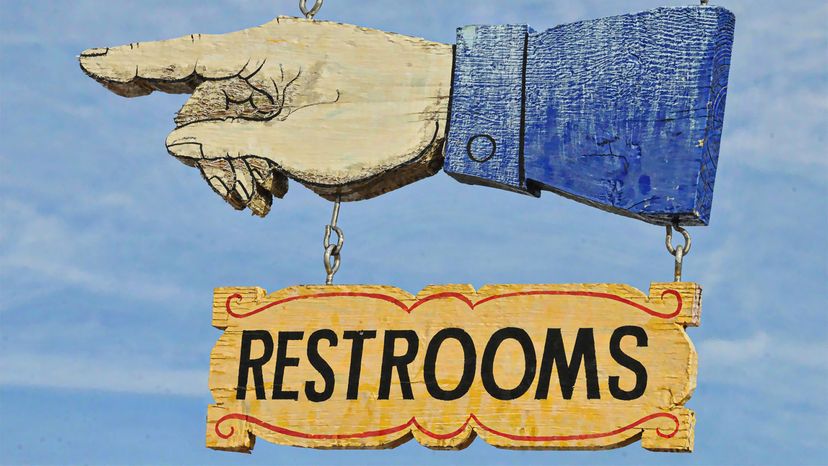
The year 1978 will be remembered as the year clear plastic pants became popular on the disco scene and economists have called it "the best year ever." But most importantly, 1978 was the year the Swiss medical journal Schweizerische Medizinische Wochenschrift published the largest ever study on what happens in your bowels during vacation.
Forty years ago, as now, it was considered impolite to disclose any aberrations in your pooping experience with anyone but your nearest and dearest. However, these 10,500 brave study participants — all of whom had recently visited the tropics — took one for the team and filled out a questionnaire about what went on in the bathroom during and after their trip. Because it’s easy to pick up a touch of the tummy bug in the tropics, 34 percent of the participants reported having diarrhea during their travels, but 14 percent complained of constipation.
In a much smaller but more comprehensive 2003 study of the bowel function of travelers, 40 percent of the 73 participants reported becoming constipated during travel, with the constipation becoming more uncomfortable the more jet lag was involved.
You might be taking a moment now to nod at your screen, the memory of a vacation bowel incident flashing through your mind. You may be personally familiar with traveler’s constipation — or even traveler’s diarrhea. It’s OK, you’re not alone.
Staying regular while traveling is a common problem, but not a dangerous one, according to Dr. Aaron Carroll, a pediatrician at the Indiana University School of Medicine and host of the YouTube show Healthcare Triage:
"With diarrhea, it might just be because you picked up a bug," he says. "Specific viruses are easily transmitted in close quarters, like on airplanes or cruise ships. Everybody thinks it’s the air on planes — the air on airplanes is actually really well cleaned and circulated. It’s those trays on airplanes that are filthy, and God knows how many people have handled the magazines. That’s how you get stomach bugs."
So, you know, wash your hands a lot in very busy public spaces where people come from all over the world to congregate.
But constipation is the actually the most common complaint amongst travelers, which is somewhat unsurprising since between 12 and 19 percent of Americans just experience perpetually sluggish digestion. But for those of us who notice it most when we travel, change in routine is probably the culprit, says Carroll, although constipation generally requires a set of criteria that’s hard to meet in a very short trip. Be that as it may, it’s tough to have a great time in Florida when you haven’t pooped in four days, but if it bothers you, the best you can do is try to stay on schedule, and within your normal habits as much as possible.
"We just get off our routines, whatever our normal routine is. People are actually pretty regulated — we establish set patterns of when we’re active, when and what we’re eating and drinking. Anytime you travel, that’s probably the No. 1 thing that disrupts our normal bowel habits."
So, although you can try drinking more water, eating more fiber, avoiding greasy or bready foods, or just drinking a nice big cup of coffee (caffeine is a stimulant that fires up some people’s intestinal muscles), all of which might help in a slow bowel moment on the road, getting worked up about it isn’t going to help you have a good time:
"Try to drink as much as you usually do, try not to eat too differently, get your normal level of activity," says Carroll. "Just own it and don’t freak out about it. The vast majority of people are going to be fine. It shouldn’t be a reason to worry or not to travel — when you need to go, you’ll go."
Now That’s Interesting
The medical definition of constipation is a condition in which the sufferer passes fewer than three stools per week, has hard or painful stools, or just the feeling that there is more pooping to be done after they’ve gone to the bathroom.